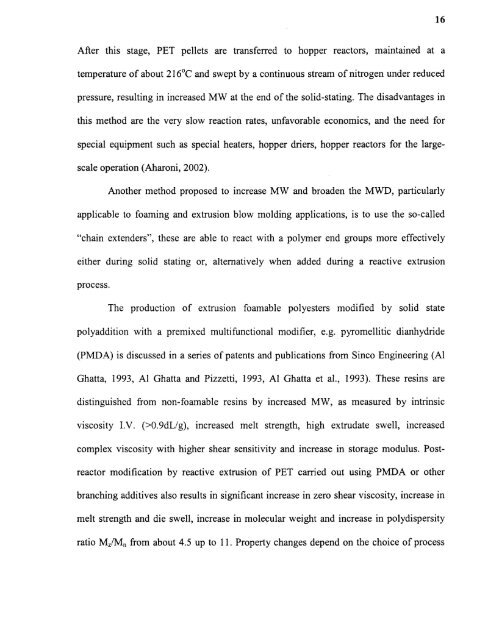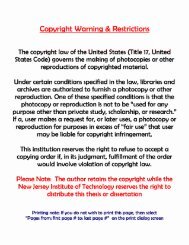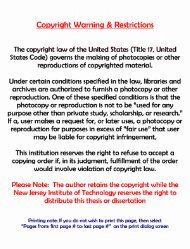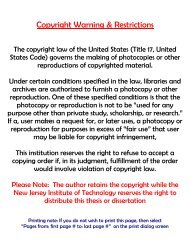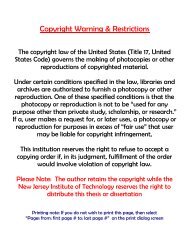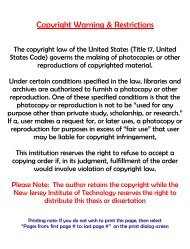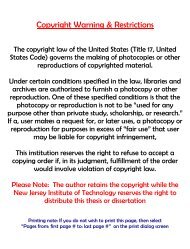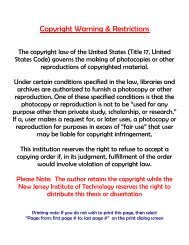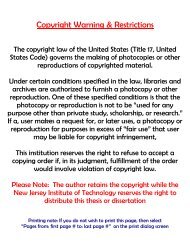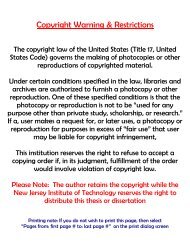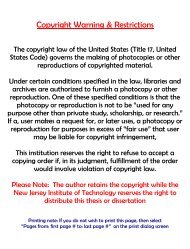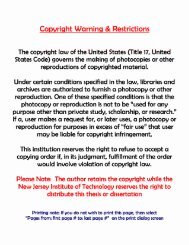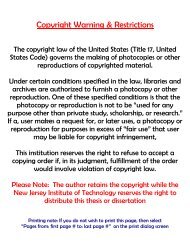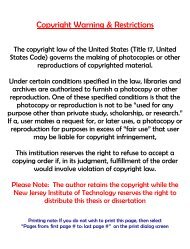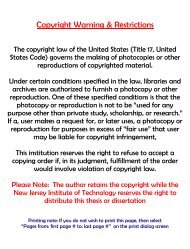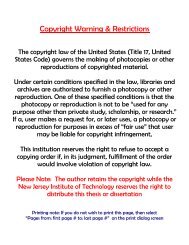A reactive melt modification of polyethylene terephthalate
A reactive melt modification of polyethylene terephthalate
A reactive melt modification of polyethylene terephthalate
Create successful ePaper yourself
Turn your PDF publications into a flip-book with our unique Google optimized e-Paper software.
16<br />
After this stage, PET pellets are transferred to hopper reactors, maintained at a<br />
temperature <strong>of</strong> about 216 °C and swept by a continuous stream <strong>of</strong> nitrogen under reduced<br />
pressure, resulting in increased MW at the end <strong>of</strong> the solid-stating. The disadvantages in<br />
this method are the very slow reaction rates, unfavorable economics, and the need for<br />
special equipment such as special heaters, hopper driers, hopper reactors for the largescale<br />
operation (Aharoni, 2002).<br />
Another method proposed to increase MW and broaden the MWD, particularly<br />
applicable to foaming and extrusion blow molding applications, is to use the so-called<br />
"chain extenders", these are able to react with a polymer end groups more effectively<br />
either during solid stating or, alternatively when added during a <strong>reactive</strong> extrusion<br />
process.<br />
The production <strong>of</strong> extrusion foamable polyesters modified by solid state<br />
polyaddition with a premixed multifunctional modifier, e.g. pyromellitic dianhydride<br />
(PMDA) is discussed in a series <strong>of</strong> patents and publications from Sinco Engineering (Al<br />
Ghatta, 1993, Al Ghatta and Pizzetti, 1993, Al Ghatta et a1., 1993). These resins are<br />
distinguished from non-foamable resins by increased MW, as measured by intrinsic<br />
viscosity I.V. (>0.9dL/g), increased <strong>melt</strong> strength, high extrudate swell, increased<br />
complex viscosity with higher shear sensitivity and increase in storage modulus. Postreactor<br />
<strong>modification</strong> by <strong>reactive</strong> extrusion <strong>of</strong> PET carried out using PMDA or other<br />
branching additives also results in significant increase in zero shear viscosity, increase in<br />
<strong>melt</strong> strength and die swell, increase in molecular weight and increase in polydispersity<br />
ratio Mz/Mn from about 4.5 up to 11. Property changes depend on the choice <strong>of</strong> process


